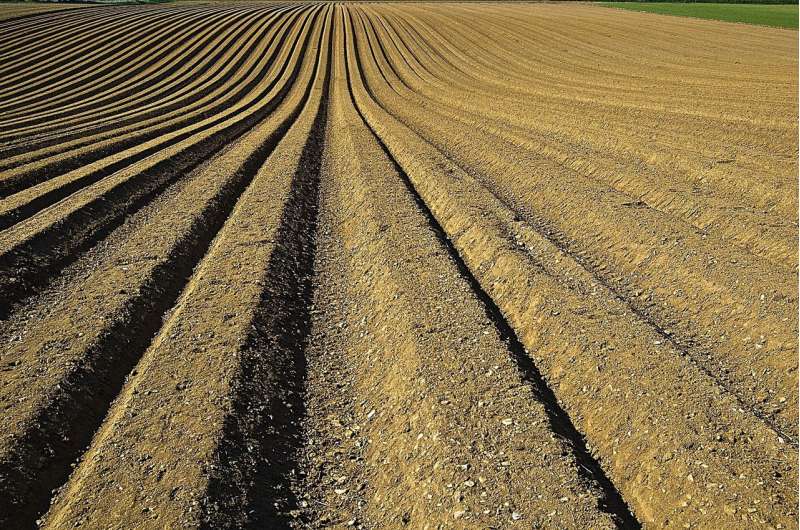August 16, 2018 report
A way to get green revolution crops to be productive without needing so much nitrogen

A team of researchers from the Chinese Academy of Sciences, the Academy of Agriculture and Forestry Sciences in China and the University of Oxford in the U.K. has found a way to grow green revolution crops using less nitrogen with no reduction in yield. In their paper published in the journal Nature, the group describes their research efforts and the results they found when planting newly developed plant varieties. Fanmiao Wang and Makoto Matsuoka with Nagoya University offer a News & Views piece on the work done by the team in the same journal issue.
The green revolution was characterized by big increases in crop production in developing countries—it came about due to the increased use of pesticides, fertilizers and changes in crop varieties used. One of the changes to the crops came about as rice and wheat plants were bred to grow less tall to prevent damage from wind and rain. While this resulted in improved yields, it also resulted in the use of more nitrogen-based fertilizers, which are environmentally harmful. In this new effort, the researchers wondered if it might be possible to re-engineer green-revolution crop varieties in such a way as to restrict height and therefore retain high productivity, while also using nitrogen more efficiently.
Prior research had shown that proteins in the DELLA family reduced plant growth. Crop breeding in the 1960s led to varieties of rice and wheat with genetic mutations that allowed the proteins to build up in the plants, thus stunting their growth. Unfortunately, DELLA proteins have also been found to be the cause of inefficient nitrogen use in the same plants—as a result, farmers used more of it to increase yields. To overcome this problem, the researchers crossbred varieties of rice to learn more, and found that the transcription factor OsGRF4 was associated with nitrogen uptake. Using that information, they engineered some varieties of rice to express OsGRF4 at higher levels, which, when tested, showed higher uptake of nitrogen. The team then planted the varieties they had engineered and found that they required less nitrogen to produce the same yields—and they were just as stunted. They therefore claim that it is possible to grow green-revolution crops that require less nitrogen.
More information: Shan Li et al. Modulating plant growth–metabolism coordination for sustainable agriculture, Nature (2018). DOI: 10.1038/s41586-018-0415-5
Abstract
Enhancing global food security by increasing the productivity of green revolution varieties of cereals risks increasing the collateral environmental damage produced by inorganic nitrogen fertilizers. Improvements in the efficiency of nitrogen use of crops are therefore essential; however, they require an in-depth understanding of the co-regulatory mechanisms that integrate growth, nitrogen assimilation and carbon fixation. Here we show that the balanced opposing activities and physical interactions of the rice GROWTH-REGULATING FACTOR 4 (GRF4) transcription factor and the growth inhibitor DELLA confer homeostatic co-regulation of growth and the metabolism of carbon and nitrogen. GRF4 promotes and integrates nitrogen assimilation, carbon fixation and growth, whereas DELLA inhibits these processes. As a consequence, the accumulation of DELLA that is characteristic of green revolution varieties confers not only yield-enhancing dwarfism, but also reduces the efficiency of nitrogen use. However, the nitrogen-use efficiency of green revolution varieties and grain yield are increased by tipping the GRF4–DELLA balance towards increased GRF4 abundance. Modulation of plant growth and metabolic co-regulation thus enables novel breeding strategies for future sustainable food security and a new green revolution.
Journal information: Nature
© 2018 Phys.org





















